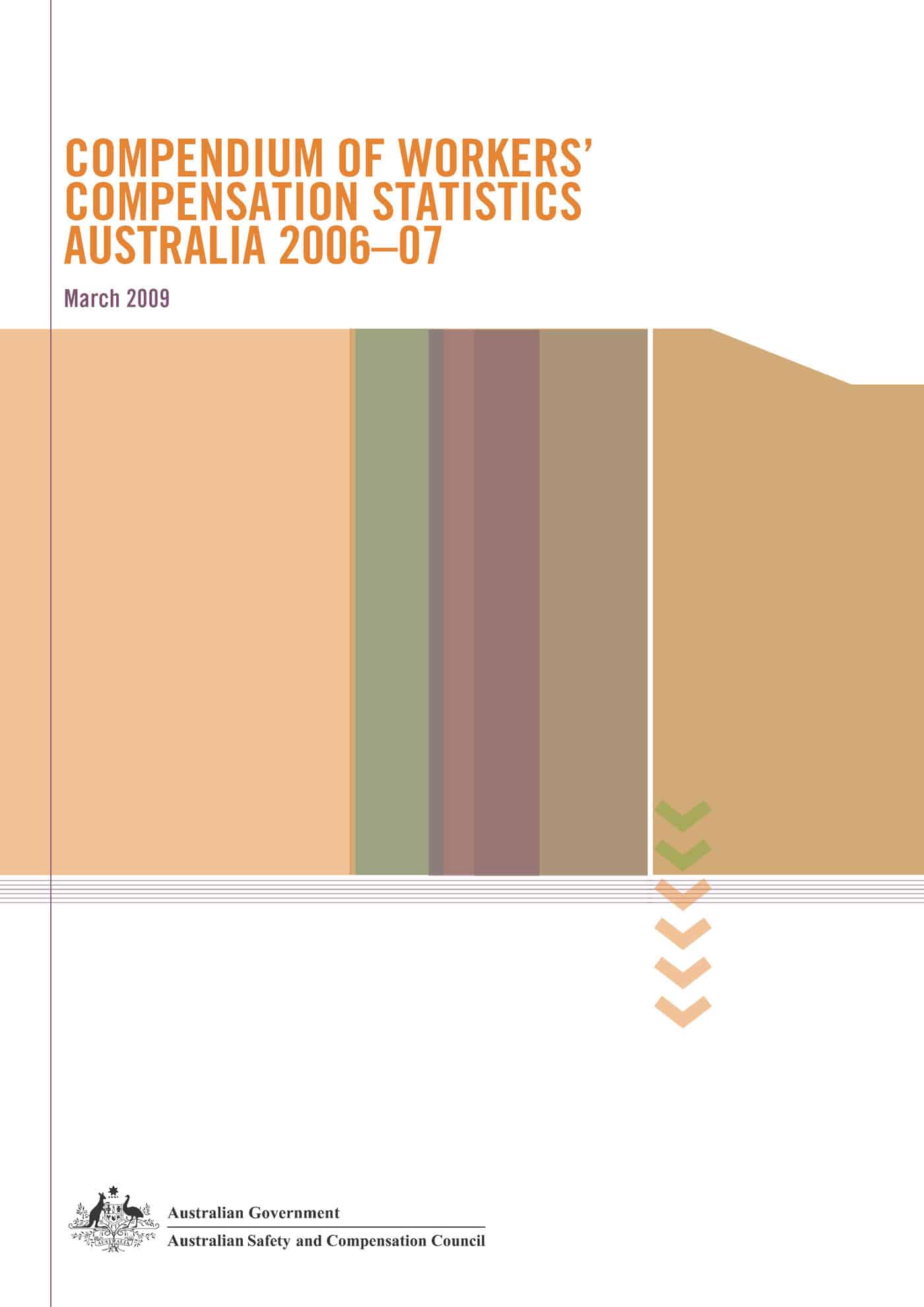Below is an edited summary of the findings from the latest compendium of statistics issued by the Australian Safety & Compensation Council. The stats relate to 2006-07 primarily but with some comparative data from 2000-01 onwards. The full report is available for download as is a media statement from the Council Chairman, Bill Scales.
132 055 serious workers’ compensation claims in 2006-07 = to 14 claims per 1000 employees or 9 claims per million hours worked.
Men accounted for 68% of all serious claims
Incidence rates for male employees almost twice that of females
There were 9 claims per 1000 employees aged 15-19 years, which increased to 17 claims per 1000 employees aged 60-64 years.
“The Manufacturing, Transport and storage, Agriculture, forestry and fishing, and Construction industries had incidence rates substantially above the national rate of 14 claims per 1000 employees.”
The occupational group with the highest incidence rate of serious claims was Labourers and related workers (39 claims per 1000 employees).
Transport workers and some others had the second highest rate with 29 claims per 1000 employees.
The majority (73%) of the serious claims involved injury or poisoning (95 910 claims)
The remaining 27% (36 145 claims) were disease related.
The most common injury (41%of all serious claims leading to a serious claim was Sprains and strains of joints and adjacent muscles.
Fractures and Open wounds (8% of all serious claims )not involving traumatic amputation were the next most common injuries
The most common diseases were:
- Disorders of muscle, tendons and other soft tissues (7% of all serious claims),
- Dorsopathies – disorders of spinal vertebrae (6%), and
- Mental disorders (5%).
23% of all serious claims involved the Back. Hand (13%), Shoulder (9%) and Knee (9%).
Manual handling mechanisms (Body stressing) were the cause of 41% of all serious claims, with:
- lifting objects (18%)
- handling objects (15%)
The most common mechanism was Falls on the same level (13%).
Non-powered handtools, appliances and equipment represented 26% of all serious claims.
Over the period 2000-01 to 2005-06, the number of serious claims decreased 6% from 144 740 claims to 136 575.
“The Agriculture, forestry and fishing industry recorded the highest time lost from work of 4.6 working weeks in 2005-06 but due to the lower salaries in this industry, it recorded one of the lowest median payment amounts ($5100 in 2005-06 compared to the all claims median of $6100). The highest median payments were recorded in the Mining industry ($10 400 in 2005-06).”
Compensated Fatalities
Preliminary data show that in 2006-07 there were 236 compensated fatalities = an incidence rate of 2.5 fatalities per 100 000 employees.
Of the fatalities, 91% were male employees.
Over the period from 2000-01 and 2005-06, the number of fatalities fell 21%.
Industry
The Construction industry recorded the highest number of fatalities (50).
Transport and storage industry = 45 fatalities (of which 31 were in Road freight transport).
Mechanism of injury or disease
A third of the fatalities (81) were due to Vehicle accident
33 deaths due to Long term contact with chemicals or substances,
19 due to Being hit by moving objects and
18 due to Being hit by falling objects.

Very Good Post
Not quite so reassuring compared to both the UK and Sweden, where fatality rates are under 1 per 100,000.
Not quite so reassuring compared to both the UK and Sweden, where fatality rates are under 1 per 100,000.
Not quite so reassuring compared to both the UK and Sweden, where fatality rates are under 1 per 100,000.
These worker safety stats for Australia sound pretty good. For comparison, in 2007 the rate in the United States was 3.7 fatalities per 100,000 workers, as compared to 2.5 in Australia. And this 3.7 number was the lowest ever recorded in a year in the US.